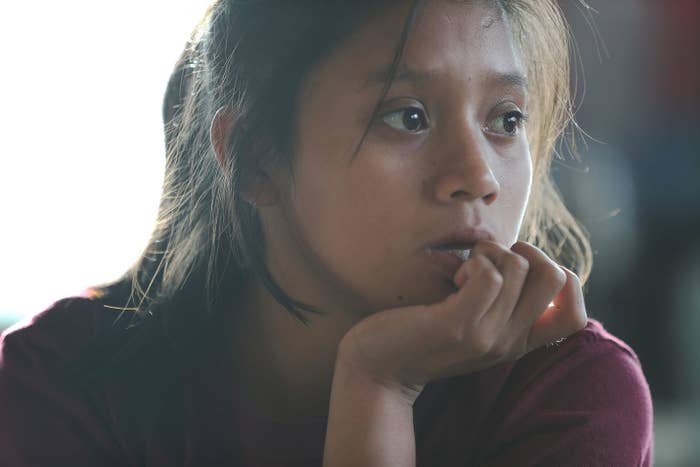
The Trump administration is attempting to get out from under a federal court agreement that limits how long it can hold children in immigration detention with the hope that it can hold families indefinitely.
Under a 21-year-old court settlement known as the Flores agreement, the government can't hold children in immigration detention for longer than 20 days. The Trump and Obama administrations have challenged the restrictions before, because they force the government to quickly release children and their parents who've been caught trying to cross the US border. A federal court has rejected those efforts.
Now the Trump administration is making a new effort to alter the agreement, saying that the knowledge that immigrant adults will be released with their kids encourages them to bring their children with them on the dangerous journey to the US.
"The expectation that adults with juveniles will remain in the United States outside of immigration detention may incentivize these risky practices," the government said in its announcement Thursday that it was going to make another try at changing the Flores agreement.
This time, the government is trying to circumvent one of the key aspects of the Flores agreement — that the facilities where children are held must be state-licensed — by setting up a separate federal licensing system.
The Trump administration said most states don't offer licensing for family residential centers that detain immigrant children and parents together. The ones that do have had their licensing processes challenged and in one case invalidated.
"It is difficult to continue to detain a family in a state-licensed facility," the government said in its rule proposal. "The proposed rule would eliminate that barrier to the continued use of [family residential centers] by creating an alternative federal licensing scheme for such detention. The goal is to provide materially identical assurances about the conditions of confinement at that facility, and thus to implement the underlying purpose of the [Flores agreement's] licensing requirement."
The government will likely end up in court over the proposed changes before a judge who has ruled previously against efforts to modify the agreement. In July, US District Judge Dolly Gee rejected the Trump administration's bid to change the terms of the Flores settlement in an attempt to hold families together.
Gee said then that holding kids in unlicensed facilities "would constitute a fundamental and material breach" of the settlement agreement.
Under the proposed rule, the federal government would consider a facility licensed if it hires an outside entity to ensure that the location complies with standards set by Immigration and Customs Enforcement.
"Under this proposed rule, the proposed rule may result in extending detention of some minors, and their accompanying parent or legal guardian, in [family residential centers] beyond 20 days," the draft regulations said.
The government also said "the primary purpose of this action is to promulgate regulations that would ultimately lead to the termination of the [Flores settlement agreement]."
The change could allow the Trump administration to go back to applying its "zero tolerance" policy to families caught trying to enter the US illegally. It ended its scheme of prosecuting all adults caught entering the US after the uproar that greeted the government's systematic separation of 2,654 children from their parents.
“Today, legal loopholes significantly hinder the Department’s ability to appropriately detain and promptly remove family units that have no legal basis to remain in the country,” Kirstjen Nielsen, secretary of the Department of Homeland Security, said in a statement announcing the new rule proposal. “This rule addresses one of the primary pull factors for illegal immigration and allows the federal government to enforce immigration laws as passed by Congress.”

Michelle Brané, director of the Migrant Rights and Justice Program at the Women’s Refugee Commission, said that what the administration is calling "legal loopholes" are actually basic standards for protecting children — "standards," Brané said in a statement, "they are trying to scrap to pursue an agenda of family incarceration that the government’s own doctors have warned is harmful and dangerous for children.”
“The same administration that forcibly separated children from their parents and knowingly inflicted trauma on them cannot be allowed to set the standard of care for immigrant children," Brané added.
Efrén Olivares, the racial and economic justice director for the Texas Civil Rights Project, said any attempt to withdraw from the Flores agreement to circumvent previous court orders and expand family detention is unacceptable.
"The remedy for family separation is not, and never will be, indefinitely locking up whole families in immigration prisons," Olivares said. "Instead of attempting to violate the rights of yet more families, the government should be focused on reuniting the hundreds of families still separated, including the dozens of parents who were deported without their children and those who remain detained without their children.”

